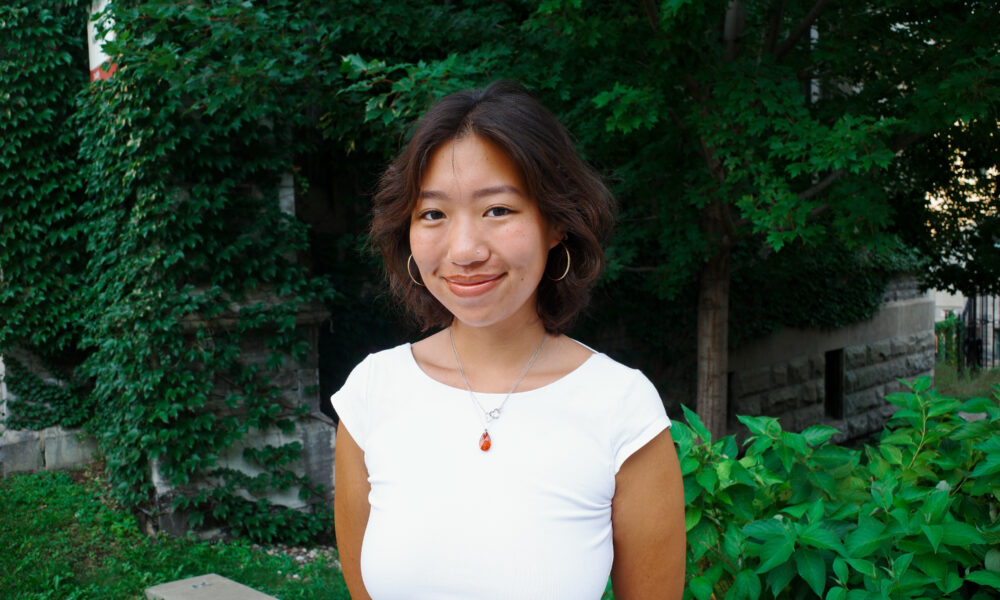When I applied to McGill’s Interfaculty of Arts and Science, I didn’t know what I wanted to major in, but I did know one thing: I was in search of an interdisciplinary education. I didn’t want to stay in the STEM box I had streamlined myself into during my final years of high school. With that goal in mind, I knew I had to push beyond my comfort zone and develop skills I hadn’t fully explored yet. That desire led me to McGill’s interfaculty programs, and eventually to The Tribune.
The Bachelor of Arts and Science is a hidden gem at McGill. My peers often ask me, “Wait, that’s a thing?” It’s ironic how overlooked this degree is, given how well it represents what education should be—interdisciplinary. Too often, education feels like a series of narrow boxes—science students stick to labs, and humanities students stick to essays. But the most meaningful learning happens when we cross those boundaries. My experience in this program—and my work at The Tribune—has cemented my belief that all faculties should become interfaculties.
When I accepted my role as Web Editor for The Tribune, I knew it wouldn’t be a typical tech job consisting of writing HTML and CSS or debugging code. I knew I would have to write—something I never practiced and avoided at all costs because it intimidated me. Writing this article, for example, has involved painfully long hours of staring at a blank Google Doc, battling self-doubt. But I also knew writing would push me to grow, help me understand the importance of communication, and change the way I approach learning.
While my role focuses on web development, it would be impossible to ignore the larger importance of the stories we publish. What good is a beautifully designed website if the content doesn’t resonate with its readers? That realization made me appreciate writing as a cultivable and important skill. Writing this article has been an exercise in conveying complex ideas clearly and compellingly—a skill as crucial in coding as in journalism.
Poor communication, I’ve learned, undermines brilliant ideas even in highly regarded fields such as academia. A professor of mine once described the common academic experience of watching a researcher, passionate and technically skilled, lose their audience. They dive straight into formulas and technical details, leaving the room disengaged as they fail to regard the crucial storytelling aspect of their presentation. There is importance in explaining the context behind their scientific research and the journey that led them there. It’s tragic—not just because it’s boring, but because it wastes an opportunity to educate and inspire. Every breakthrough has a story, and if no one tells it, its impact fades.
This is why comprehensive education matters. In my data science class, I’ve learned that technical skills are only half the equation; the ability to communicate and present findings in a clear, impactful way is just as important. Failure to do so can lead to serious consequences, as misleading or poorly interpreted research can harm public understanding and decision-making. Similarly, medical students spend years mastering clinical skills, but how do they advocate for policy change or connect with patients in their most vulnerable moments? Courses in literature or ethics could help them develop empathy and strengthen their communication skills. The same principle applies across all disciplines.
When I think about my future, I don’t want to wear a single, isolated label as either a “science person” or an “arts person.” I want to create, communicate, and connect; education should foster that adaptability. That’s why I believe every faculty should embrace an interdisciplinary approach, encouraging students to explore modes of expression and learning beyond their comfort zones. Ultimately, education isn’t just about preparing students for specific careers, it’s about preparing them for life. A comprehensive education builds adaptability, empathy, and the ability to connect ideas across fields. These aren’t just workplace skills—they’re human skills. If my time in the Interfaculty of Arts and Science and at The Tribune has taught me anything, it’s that the best learning happens at the intersections of disciplines.









